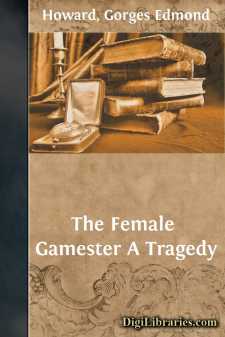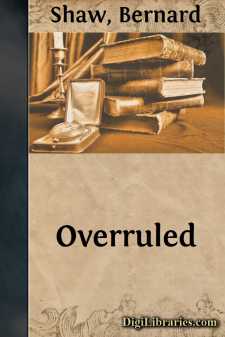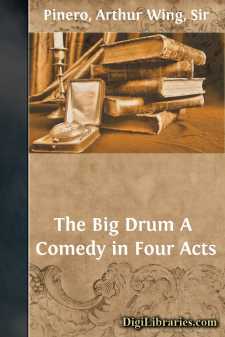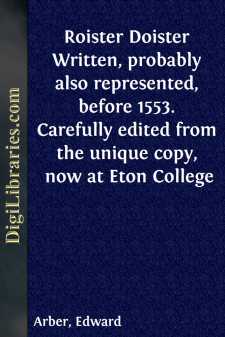Drama
- American 43
- Ancient, Classical & Medieval 45
- Asian 7
- Caribbean & Latin American 2
- Continental European 50
- English, Irish, Scottish, Welsh
- General 105
- Middle Eastern 1
- Religious & Liturgical 1
- Shakespeare 1
English, Irish, Scottish, Welsh Books
Sort by:
by:
John Galsworthy
ACT I SCENE I The scene is a well-lighted, and large, oak-panelled hall, withan air of being lived in, and a broad, oak staircase. Thedining-room, drawing-room, billiard-room, all open into it; andunder the staircase a door leads to the servants' quarters. Ina huge fireplace a log fire is burning. There are tiger-skinson the floor, horns on the walls; and a writing-table againstthe wall opposite...
more...
by:
John Galsworthy
ACT I The MARCH'S dining-room opens through French windows on one of thosegardens which seem infinite, till they are seen to be coterminouswith the side walls of the house, and finite at the far end, becauseonly the thick screen of acacias and sumachs prevents another housefrom being seen. The French and other windows form practically allthe outer wall of that dining-room, and between them and the...
more...
ACT IV SCENE I. London. Before the Tower [Enter, on one side, QUEEN ELIZABETH, DUCHESS of YORK, and MARQUIS of DORSET; on the other, ANNE DUCHESS of GLOSTER, leading LADY MARGARET PLANTAGENET, CLARENCE's young daughter.]DUCHESSWho meets us here?—my niece Plantagenet,Led in the hand of her kind aunt of Gloster?Now, for my life, she's wandering to the Tower,On pure heart's love,...
more...
ACT I. SCENE I. Mr. ANDREWS's house. Enter MARIA and THOMAS. MARIA. But why these moping, melancholy looks?Each eye observes and marks them now unseemly,Whilst every countenance but your's speaks joy,At the near wedding of our master's daughter.Sure none so well deserv'd this noble prize:And young lord Weston will be bless'd indeed. THOMAS. It has been countermanded. MARIA....
more...
by:
Bernard Shaw
THE ALLEVIATIONS OF MONOGAMY. This piece is not an argument for or against polygamy. It is a clinical study of how the thing actually occurs among quite ordinary people, innocent of all unconventional views concerning it. The enormous majority of cases in real life are those of people in that position. Those who deliberately and conscientiously profess what are oddly called advanced views by those...
more...
by:
John Galsworthy
HALL-MARKED The scene is the sitting-room and verandah of HER bungalow. The room is pleasant, and along the back, where the verandahruns, it seems all window, both French and casement. There is adoor right and a door left. The day is bright; the timemorning. [HERSELF, dripping wet, comes running along the verandah,through the French window, with a wet Scotch terrier in herarms. She vanishes through the...
more...
THE BIG DRUM THE FIRST ACT The scene is a room, elegantly decorated, in a flat in South Audley Street. On the right, two windows give a view, through muslin curtains, of the opposite houses. In the wall facing the spectator are two doors, one on the right, the other on the left. The left-hand door opens into the room from a dimly-lighted corridor, the door on the right from the dining-room. Between...
more...
by:
Edward Arber
INTRODUCTION. HE author and early date of the present Comedy are ascertained by a quotation in Sir Thomas Wilson’s Rule of Reason of Roister Doister’s letter to Dame Custance. The first edition of the Rule of Reason, 1550-1, is a very scarce work; of which I have been unable to see a copy. The second edition, 1552, 8vo, ‘newely corrected by Thomas Wilson,’ has not the quotation: which...
more...
by:
Ben Jonson
INTRODUCTION THE greatest of English dramatists except Shakespeare, the first literary dictator and poet-laureate, a writer of verse, prose, satire, and criticism who most potently of all the men of his time affected the subsequent course of English letters: such was Ben Jonson, and as such his strong personality assumes an interest to us almost unparalleled, at least in his age. Ben Jonson came of the...
more...
by:
Bernard Shaw
You once asked me why I did not write a Don Juan play. The levity with which you assumed this frightful responsibility has probably by this time enabled you to forget it; but the day of reckoning has arrived: here is your play! I say your play, because qui facit per alium facit per se. Its profits, like its labor, belong to me: its morals, its manners, its philosophy, its influence on the young, are...
more...











